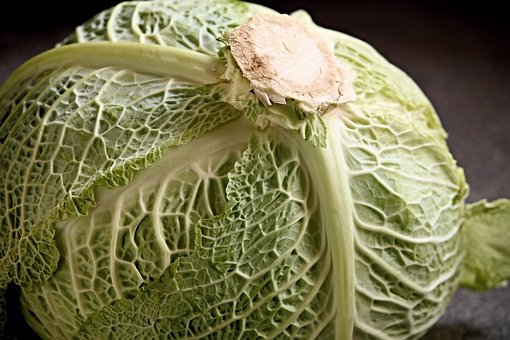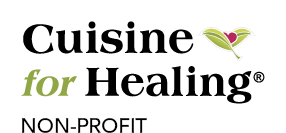
What do I love about cabbage? The tiny babies! Brussel sprouts are so cute and so good, although if you take a survey the jury is still out for a lot of people. Cabbage can be soft and savory, crispy and crunchy or roasted with maple syrup making it sweet- yes please!!
If you are trying to like this amazing veggie, I’m going to tell you why it is a must at your table.
Cabbage or headed cabbage (comprising several cultivars of Brassica oleracea) is a leafy green or purple biennial plant, grown as an annual vegetable crop for its dense-leaved heads. It is descended from the wild cabbage, B. oleracea var. oleracea, and is closely related to broccoli, cauliflower, brussels sprouts and savoy cabbage which are sometimes called cole crops. Cabbage heads can be green, purple and white. Smooth-leafed firm-headed green cabbages are the most common, with smooth-leafed red and crinkle-leafed savoy cabbages of both colors seen more rarely. It is a multi-layered vegetable. Under conditions of long sunlit days such as are found at high northern latitudes in summer, cabbages can grow very large.
It is difficult to trace the exact history of cabbage, but it was most likely domesticated somewhere in Europe before 1000 BC, although savoys were not developed until the 16th century. By the Middle Ages, it had become a prominent part of European cuisine.
Did you know that the inexpensive, humble and widely used cabbage can practically work miracles?
Cabbage is an abundant source of Vitamin C. You might be surprised to know that it is actually richer in vitamin C than oranges, which is traditionally considered the “best” source of that vital nutrient. Vitamin C is one of the most powerful antioxidants. It helps in repairing wear and tear on the body through the course of your life. This makes cabbage is very helpful in treating ulcers, certain cancers, depression, immune system boosting, and defending against cough and cold. It can also speed up the healing process for wounds and damaged tissues, regulate the proper functioning of the nervous system, and reduce the effects and presence of Alzheimer’s disease and other degenerative neural diseases.
Cabbage is also known as cruciferous vegetables. One of their most important celebrated benefits to health is their powerful antioxidant quality. This means that cabbage and other similar vegetables scavenge free radicals from around the body, which can be very detrimental to overall health and are major contributors to things like cancer and heart disease.
This amazing veggie also has a number of anti-cancer compounds, like lupeol, sinigrin, and sulforaphane, which are known to stimulate enzyme activity and inhibit the growth of tumors, which can lead to cancer. One study, performed primarily on Chinese women, showed a significant reduction in breast cancer when cruciferous vegetables like cabbage were regularly added to their diet. Wow- are you a fan yet?
Cabbage is known to accumulate a build-up of cadmium-binding complexes in its leaves, and one of the main components of that is glutamine. Glutamine is a strong anti-inflammatory agent, so consuming cabbage can reduce the effects of many type of inflammation, irritation, allergies, joint pain, fever, and various skin disorders.
Many people, particularly as they get older, turn to cabbage for its ability to prevent macular degeneration and generally promote good eye health and the delay of cataract formation. Go beta-carotene!!
Let’s not forget that cabbage is a very powerful brain food! The presence of Vitamin K and anthocyanins within cabbage can give a strong boost to mental function and concentration. These are primarily found in red cabbage, and vitamin K has been well-researched, although it is often called the “forgotten vitamin”. Vitamin K is essential in the production of sphingolipids, the myelin sheath around nerves. This wrapping is what protects nerves from damage and decay. Therefore, consuming vitamin K can improve your defense against neural degeneration, Alzheimer’s disease, and dementia.
If all that hasn’t swayed you over to our team, maybe this will. Cabbage is frequently recommended for people who want to lose weight in a healthy way. Since cabbage is packed with so many beneficial vitamins, minerals, and other nutrients, it is a healthy dietary option for people to eat a lot of, and it is quite filling due to its high levels of fiber. Only 33 calories in a cup of cooked cabbage.- sign me up!
If only you had a delicious meal with cabbage? Wait- we have one at Cuisine for Healing this week!
Try our Cabbage Rolls in Light Tomato Sauce, Red Potato Salad- hurry! It will go fast.
Happy Healthy Eating!
Dana









